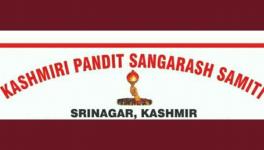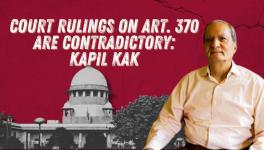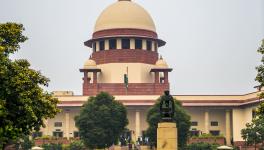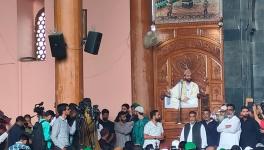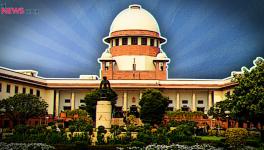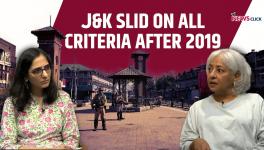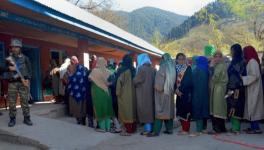Article 370: Several Kashmiri Pandits Doubtful of Return to Valley
Sitting in his balcony at Jagti camp, Roshan Lal Kaul, says he is “unaffected” by the revocation of Article 370. His feeling is echoed by his neighbour, Bansi Lal Raina (name changed), who says: “We have been living in the migrant camps and our future lies here only. Nothing will change for us. Nothing has changed for us in last 30 years.”
Sullied with unkempt hair and tattered shirt, Kaul says: “Will our return be possible after this? That is the real question and I am bit sceptical about that.”
In fact, a section of Kashmiri Pandits (KPs) in the migrant camps, Jagti and Nagrota, feel that the abrogation of Article 370 would escalate the divide between Kashmiri Pandits and Muslims, as it was done in haste and without taking the people into confidence.
Now that over a month has passed since the lockdown, the reality seems to be sinking in. Speaking with Newsclick, Shadi Lal Pandita, who lives in Jagti says: “What Modi government did was gundagardi (hooliganism). He didn’t consult people – be it, Kashmiri Pandits, Dogras, Ladakhis or Muslims. Article 370 has not only affected Kashmiri Muslims, it has also affected Kashmiri Pandits. It has also affected our identity. The way I see, elections were round the corner in four states and BJP (Bharatiya Janata Party) was losing its edge. So, this decision was taken to re-assert themselves.”
The Jagti camp is home to 5,000 Kashmiri Pandit families who migrated in the 1990s. The camp is 20 kilometers from Jammu city and is one of the largest migration settlements for KPs.
Sounding cynical about the outcome of the decision taken by the Narendra Modi government, a Kashmiri Pandit, who was walking out of the only hospital in Jagti, says, “The Modi government is saying that it will produce employment in Kashmir. I feel like laughing. Hindustan mein log berozgar baithe hai, aur Kashmir mein employment banayega. Sab chhordho, yahan iss ek hospital ko hii theek kar dete (There is unemployment in India, and the Centre is talking about generating employment in Kashmir. Leave everything else, let them at least improve this only hospital that we have),” adding “Everyone is afraid right now, No one will speak to you.”
Disappointment was visible on the faces of many KPs who felt that abrogating Article 370 and downgrading the state was not the part of the solution. “If the Centre thinks that the abrogation will pave the way for the return of KPs, let’s be clear, it a is false (understanding). The divide between Pandits and Muslims has only increased after this. And our dream of returning to our homeland seems bleak now,” said Pandita, adding that the communication blockade should be lifted and people should be allowed to freely communicate.
Roshan Lal Kaul, who left his home in 1989 when insurgency erupted in the Valley, still has vivid images of his lost home and childhood.
“It has been, 30 years since I have been living in different migrant camps. I might sound selfish but if abrogation of Article 370 can ensure my return to my homeland, I am with it. But, believe me, it won’t happen. The people should have been taken into confidence. Anyway, we have always been Indians and are paying for it till now,” he said.
Sonwala, a Kashmiri Muslim who lost his parents during the peak of insurgency in the 1990s, is also among those who migrated then. “If you ask me. The tall claims of government have been ruptured. Stone pelting is still going on. Militancy is still there and shall remain till the government doesn’t address the grievances of the people.”
On the plight of Kashmiri Pandits, Sonwala said, “Jagti is a Pandit-dominated area and I, as a Kashmiri Muslim, don’t feel threatened. I feel one with them. The same way, KPs shouldn’t feel threatened in Kashmir.”
As Pandita walks upstairs with his neighbour friend to his two-cubicle room in the settlement, he looks at the door that reads, Rajinder Kaul* (Tral, Kashmir). Pointing his finger at it, he says, “This is the reality. When we return, the world shall see. I don’t believe anything else.”
Get the latest reports & analysis with people's perspective on Protests, movements & deep analytical videos, discussions of the current affairs in your Telegram app. Subscribe to NewsClick's Telegram channel & get Real-Time updates on stories, as they get published on our website.










